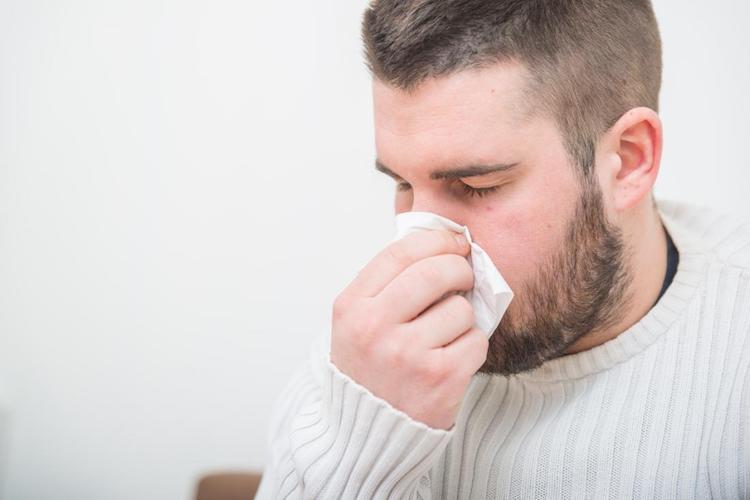- Home
- The Feature
- Is it Seasonal Allergies or COVID?

Is it Seasonal Allergies or COVID?
As the blast of tree pollen marks the beginning of spring, anxiety over COVID-19 may start to soar again because so many allergy symptoms overlap with the early signs of a viral infection.
“There are multiple overlapping symptoms you see in COVID-19 and the common seasonal allergies,” said Dr. Alfred Iloreta, an assistant professor of otolaryngology at the Icahn School of Medicine at Mount Sinai in New York City. “In both you might experience coughing, overall fatigue, sore throat, congestion, shortness of breath, a runny nose and headaches.”
A lot of the allergy symptoms, such as sore throat and coughing can stem from post nasal drip, Iloreta said, adding that allergies often don’t always lead to shortness of breath, but can when someone has asthma, too.
Your symptoms may offer some clues to help differentiate allergies from the virus, said Dr. Clifford Bassett, a clinical assistant professor of medicine at the NYU School of Medicine, medical director of Allergy & Asthma Care of NY and author of “The New Allergy Solution.”
“When you have an allergy, itchiness is a hallmark sign,” Bassett said. “If it’s a virus you may have sudden loss of appetite, headache, fever, sore throat, colored mucus, body aches and pains. Also, if you take an antihistamine you won’t get much relief.”
Also, a sore throat might be a good indicator that your symptoms aren’t caused by allergies, Bassett said. “Sore throats are associated with colds and viral infections,” he said. “Allergies, not likely.”
Symptoms that are not signs of COVID-19 also include watery eyes and sneezing or coughing attacks, Iloreta said. “And if you only get the symptoms at night when you’re in bed that could be because you’re allergic to dust mites, or if it’s only when you’re outside it could be pollen or molds,” he added.
One key symptom difference between COVID-19 and allergies is fever, said Dr. Desha Jordan, an allergist at UPMC Children’s Hospital in Pittsburgh. “Typically, seasonal allergies do not come with a fever,” said Jordan.
Another distinguishing symptom can be loss of smell or taste, which can be an early COVID-19 sign.
Other signs that it’s a viral infection rather than allergies are flu-like symptoms, body aches and gastrointestinal symptoms, such as nausea, vomiting and diarrhea, Iloreta said. If you only have GI symptoms, it’s probably not COVID-19, he added.
A quick test that might put your mind at rest is to see if your symptoms resolve with a dose of antihistamine, Iloreta said. “If they don’t get better within an hour or two, you might have the virus,” he added.
If you’re not sure whether you’re experiencing your normal allergy symptoms or COVID-19, Jordan suggests either calling or visiting your allergist. “You can also have a virtual appointment with a doctor who could help tease through whether it’s an allergy or COVID,” she said. “Most of the time we’ve been seeing people who’ve tested negative for COVID-19, who come in and say ‘Oh I guess it must be allergies after all,’” Jordan said.
For those worried that their allergies might increase susceptibility to the virus, there isn’t a lot of science to support that concern, according to the Centers for Disease Control and Prevention.
Existing studies haven’t shown that people with allergies are any more prone than others to developing viral infections, said Dr. Nathaniel Hare, an allergist at University of Pittsburgh Medical Center in Williamsport, Pennsylvania. “People are more prone to developing viral infections when they have an immune deficiency,” Hare said. “That’s very different from allergies which involve an immune hyper response. What’s happening is your immune system thinks there’s a threat when there is none.”
